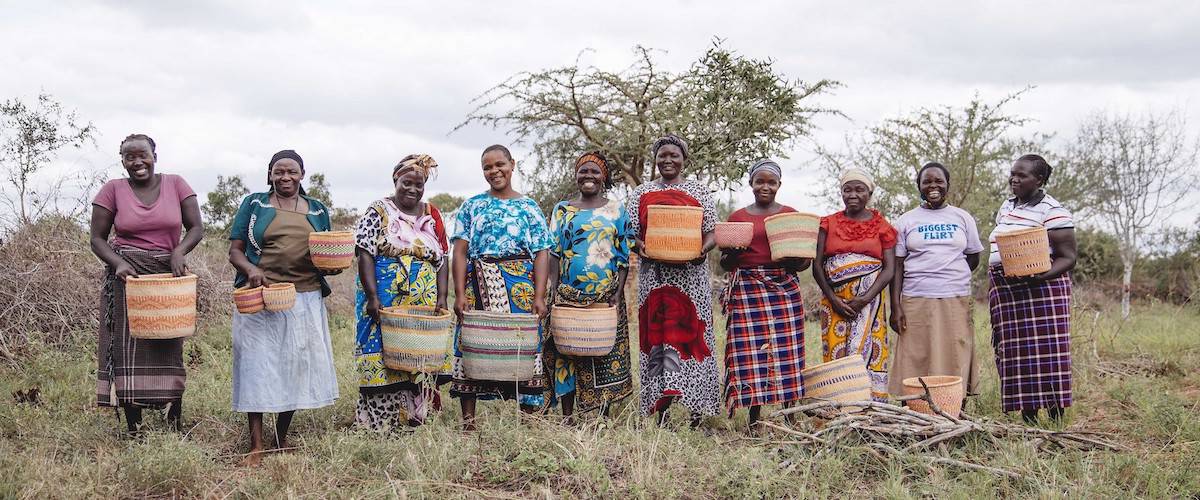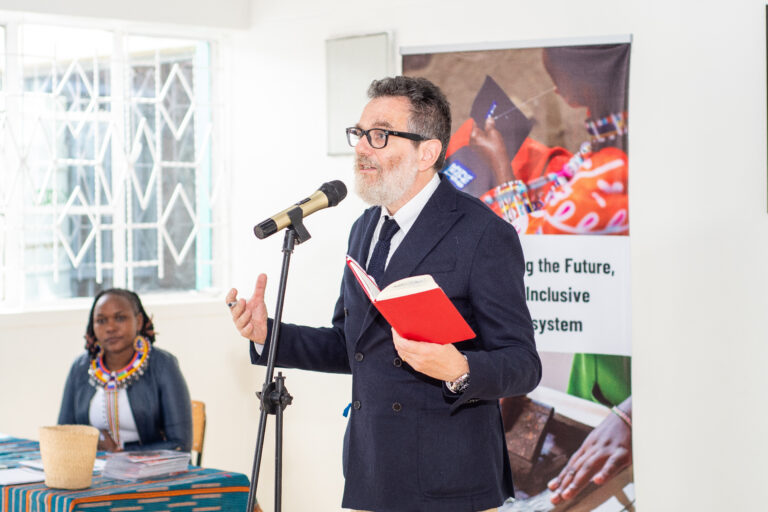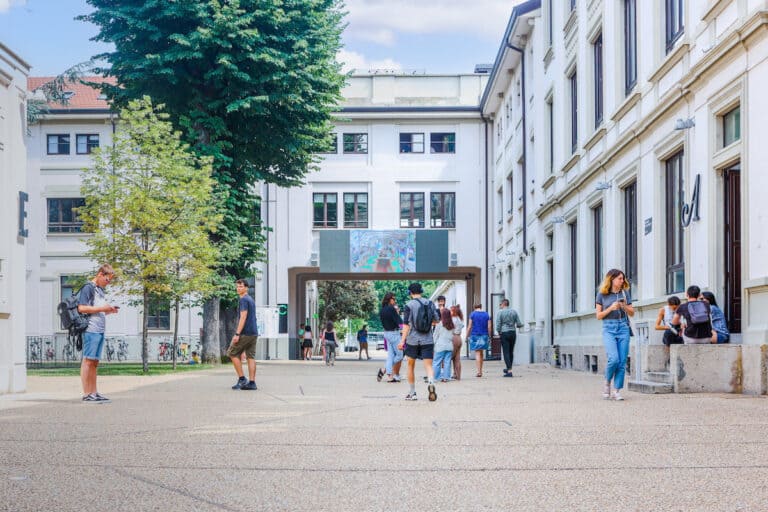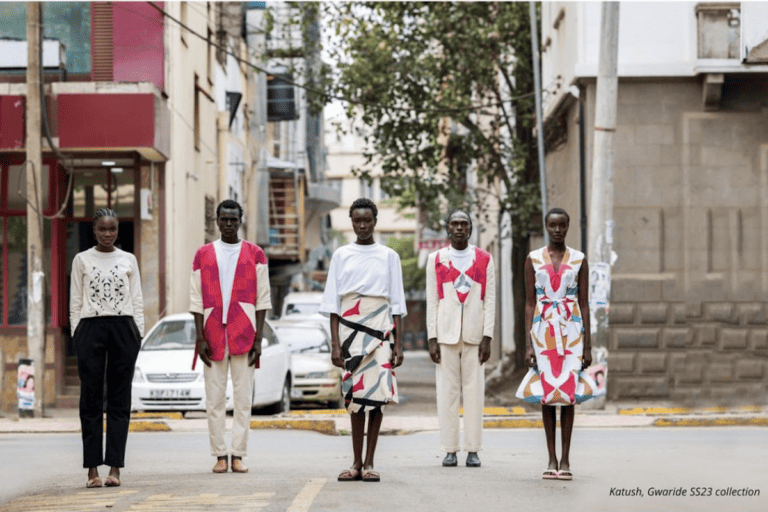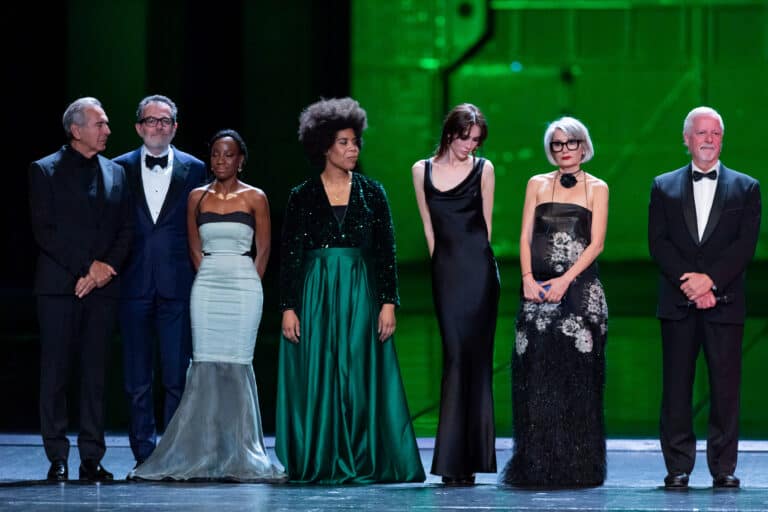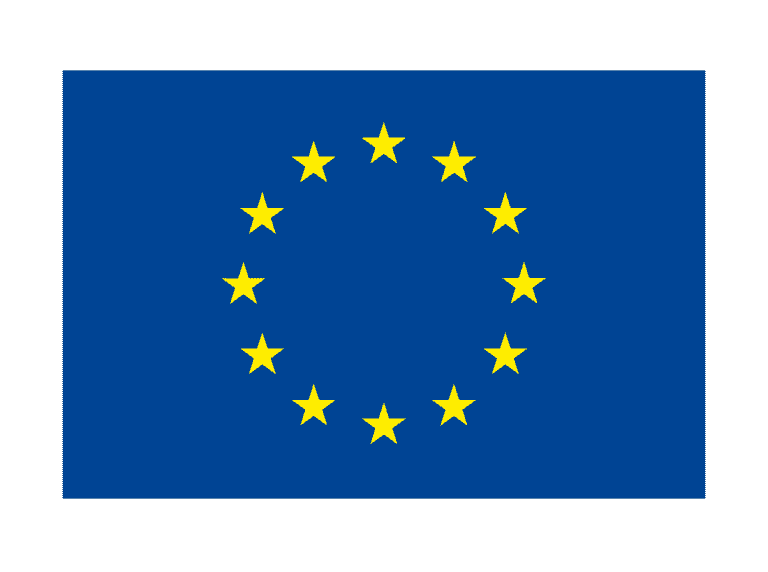The basket weavers making a difference in Kasigau
Meet Hadithi Crafts, a female collective of over 1,700 basket weavers and artisans that use their skills to assist in the conservation of their environment. The organisation currently supports 61 women’s groups that make handicrafts throughout the Kasigau region in south-eastern Kenya and, in doing so, complements larger conservation initiatives in the area.
The female artisans that make up Hadithi are expert weavers that use their handicraft skills to create beautiful, one-of-a-kind baskets. A sustainable alternative to charcoal production, basket weaving results in more trees, enabling conservation of a threatened forest and wildlife. In addition to allowing the preservation of this unique basket weaving craft, it also reduces reliance on farming and gives people the ability to sustain their families, with sales from every basket providing an income for people living within the ecosystem.
The lush and stunning yet vulnerable habitat of Kasigau, situated between the vast Tsavo East and West National Parks is equal parts home to wildlife and local communities. In order for basket weaving to go towards conservation efforts, Hadithi partners with Wildlife Works, a conservation-focused company that creates jobs for citizens in the area and provides both direct and indirect benefits to communities from carbon financing through forest protection.
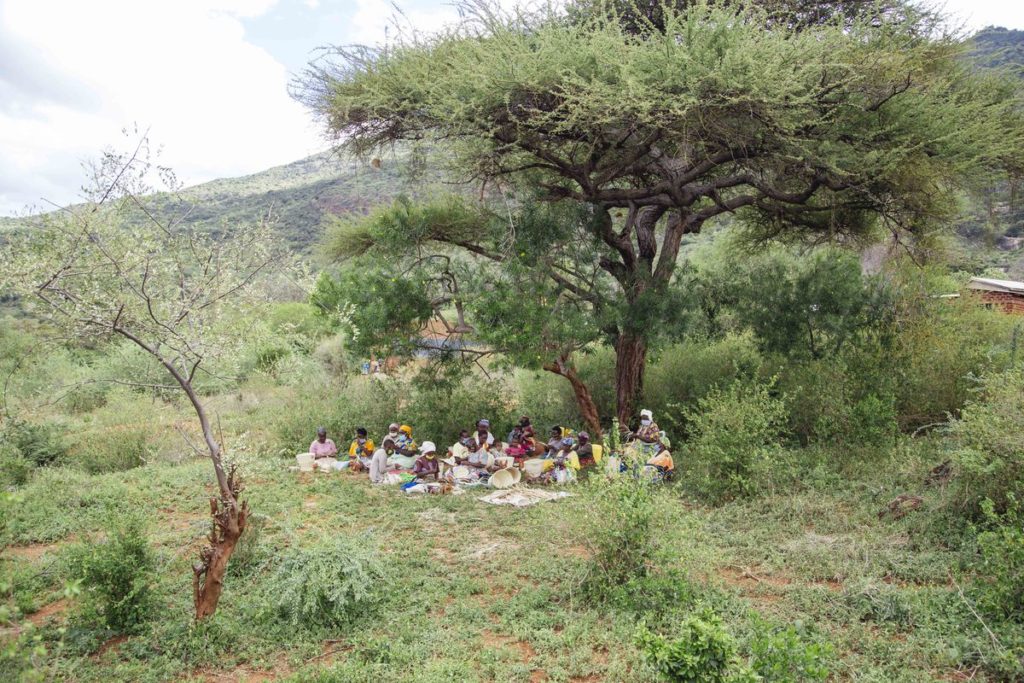
The driving force behind all biodiversity conservation efforts in the Kasigau region, Wildlife Works, is the world’s leading REDD+ (Reducing Emissions from Deforestation and Degradation) management company. Theirs is a successful initiative that allows landowners in the developing world to monetise their forest and the natural assets that come with it.
Because nature conservation is as much a collective effort as it is an individual work, conservation efforts are shared between citizens of the community and female artisans do their part through basket weaving. Beautifully shot by Kenyan photographer Louis Nderi, this photo series is dedicated to the small but impactful efforts of basket weavers in Kasigau and goes hand-in-hand with a thorough survey conducted amongst the female weavers, providing an inside glimpse into their challenges, viewpoints and vision for the future of their land.
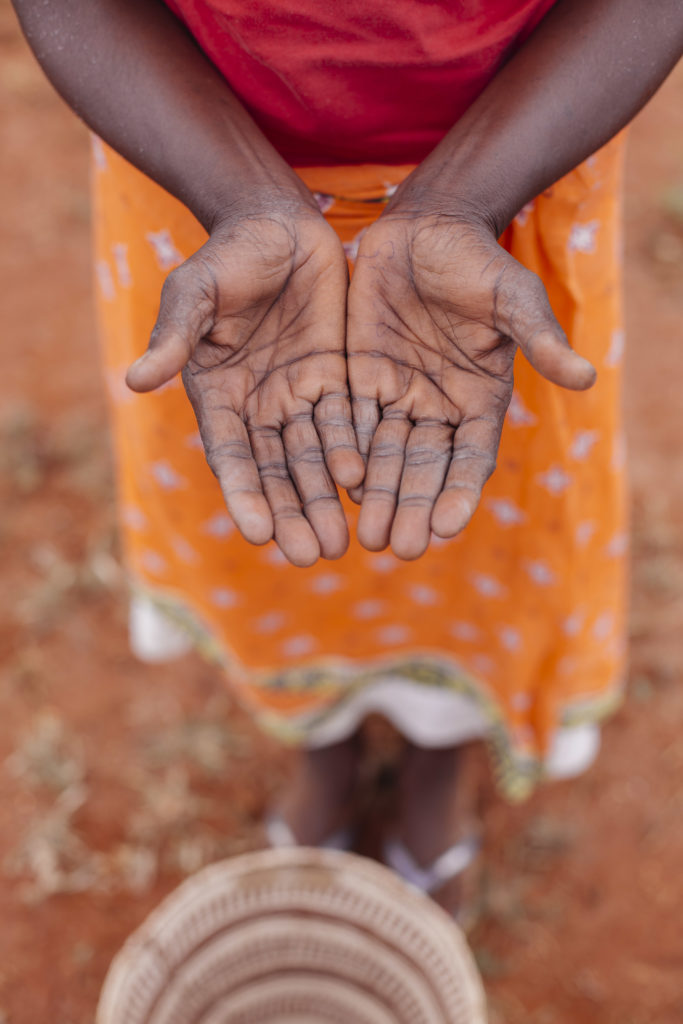
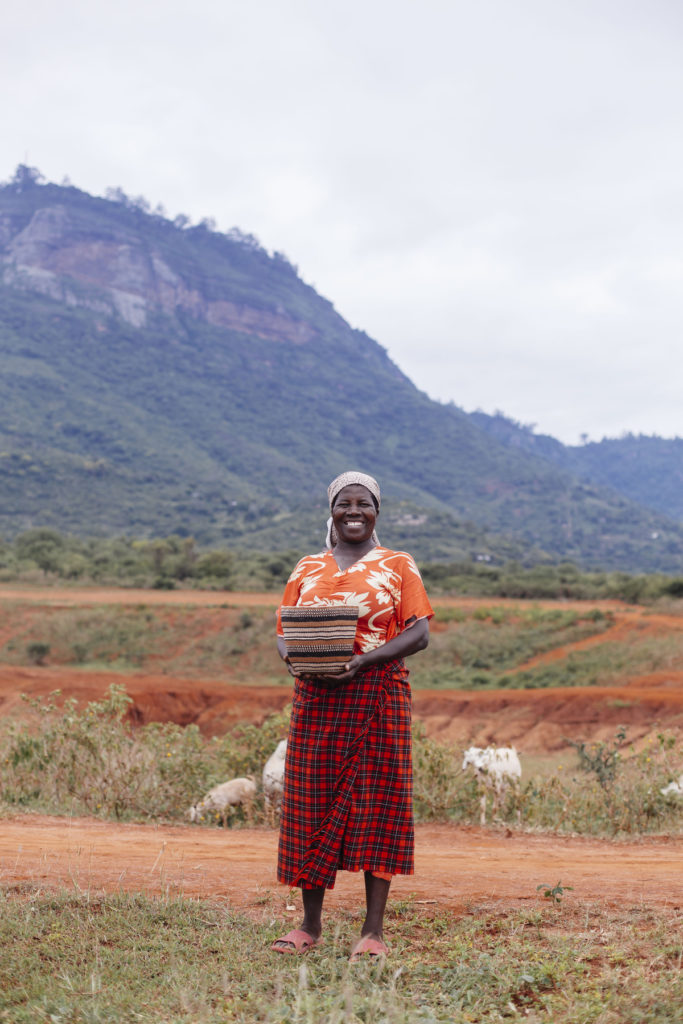
Ask the basket weavers what they struggle with the most and you’ll notice a commonality between answers. Amongst the challenges the members of this community face, “poor roads”, “wildlife animals destroying farms”, and “lack of food” are at the top of their lists.
When asked why it is crucial for the community to conserve and care for wildlife sanctuaries in Kasigau, weaver Jennifer Mrunde Masha states, “It’s important in order to hinder wild animals from coming to our farms, also to increase trees in our forest”. Hope Avua, a resident of Bungule, a village in Kasigau, has a similar reply: “It is important to look after the sanctuaries to preserve the trees and the indigenous animals”.
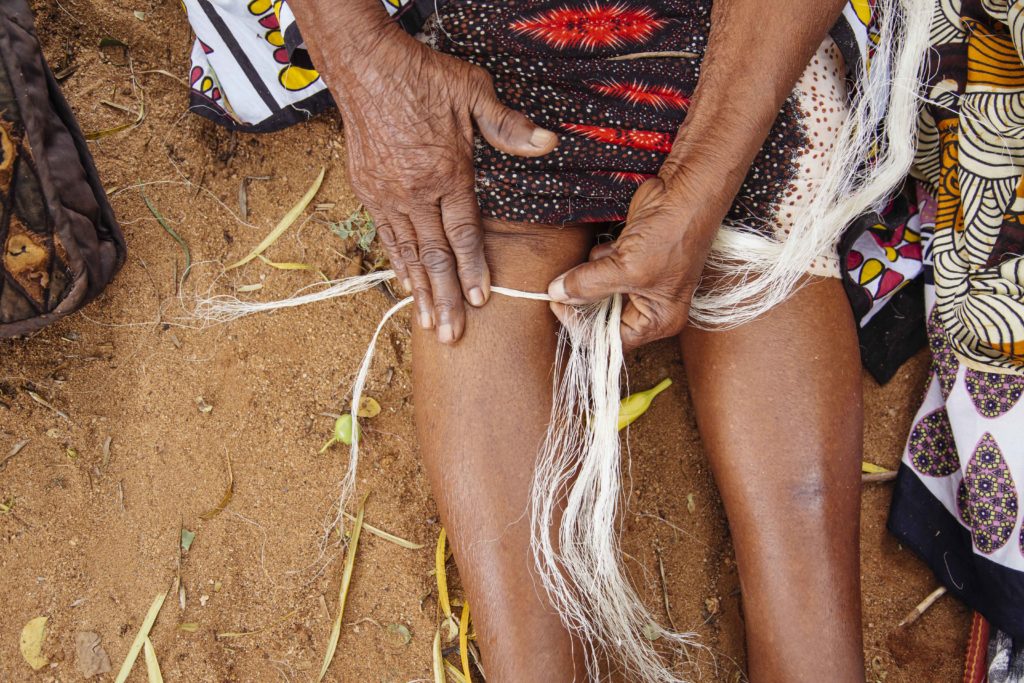
Without basket weaving, artisans Christine Makenga, Dorah Isack, and Peris Bakari of the Kasigau community explain that their professions would be different, ranging from poultry farming to crop sales. The survey shows that 50% of the basket weavers also grow farm produce when the scarce rainfall permits. This provides their families with additional food and income.
“Life has changed since I started to weave baskets. My children now go to school. I can buy food, clothes. Life is better now. I feel good, it gives me money and I sleep well at night,” Chairlady Magdaline Kethethesyo says of her experience with Hadithi.
The convenience, ease and flexibility of weaving from home are assets for these female artisans. It provides them the opportunity to care for their community in more ways than one and to live active lives. Expert weaver Sophy Mwalundi explains, “Weaving can be done in the home anytime, wherever I might be sitting. I love being able to do it in my own time and I decide”. Similarly, Eda Maghanga enjoys the flexibility of weaving at Hadithi, which allows her to pursue other business opportunities, stating, “I also have a kiosk. I sell vegetables and bread. I can weave baskets at the kiosk while I wait for customers”.
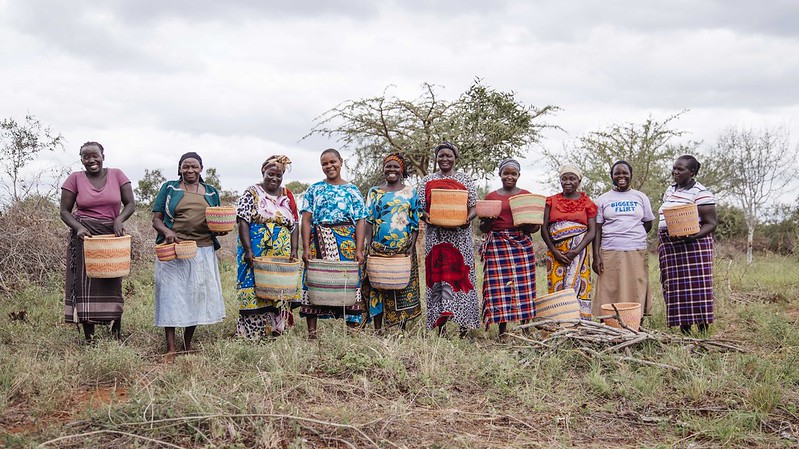
Luckily, as the world gravitates more towards a sustainable future in fashion, traditional African techniques are beginning to be even more praised in the global atmosphere. This in itself provides an opportunity for the women of Kasigau to have an optimistic future in basket weaving as well as a continual contribution to their ecosystem. Every Hadithi sale assists in providing a sustainable alternative to environmentally detrimental practices such as the degradation of forests for charcoal, timber and farmland.
Producing large-quantity orders for international brands like MIMCO has provided these artisans with labour opportunities and fueled their conservation efforts. Ethical Fashion Initiative and Artisan Fashion made the international connection and facilitated production for the Australian brand. Together, we’re doing our part to help the artisans of Kasigau keep this unique ecosystem in its natural balance for years to come.
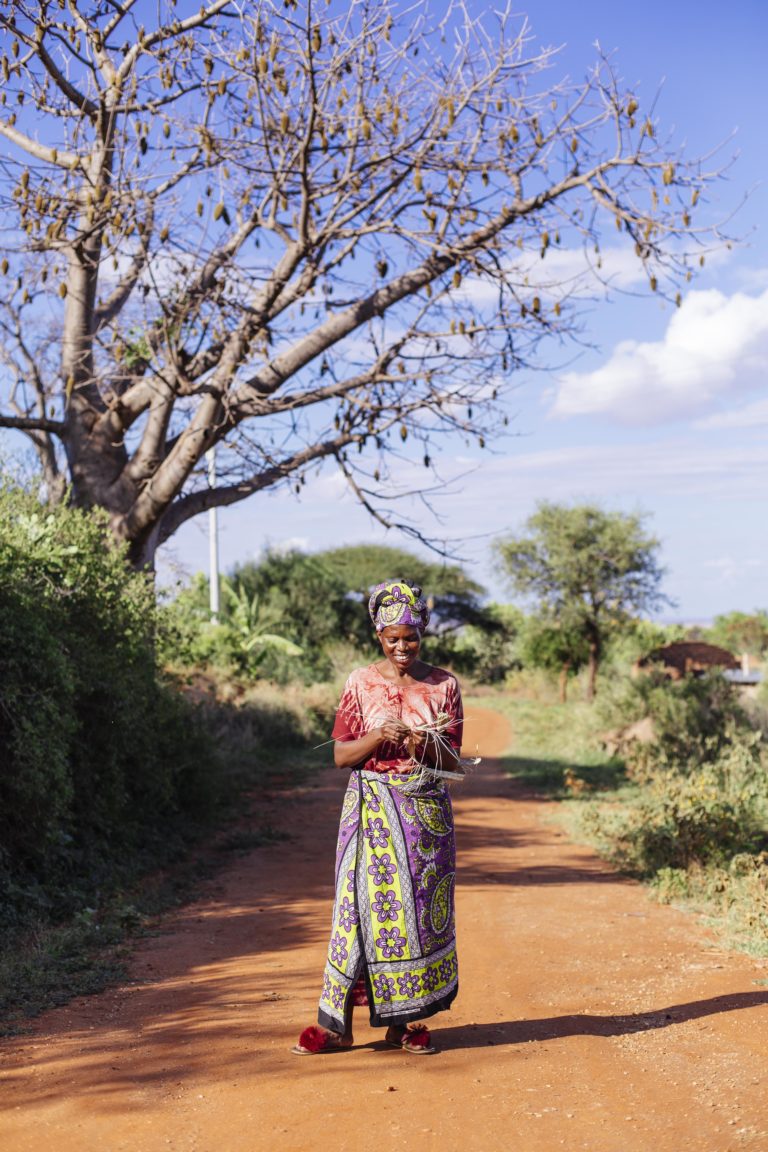
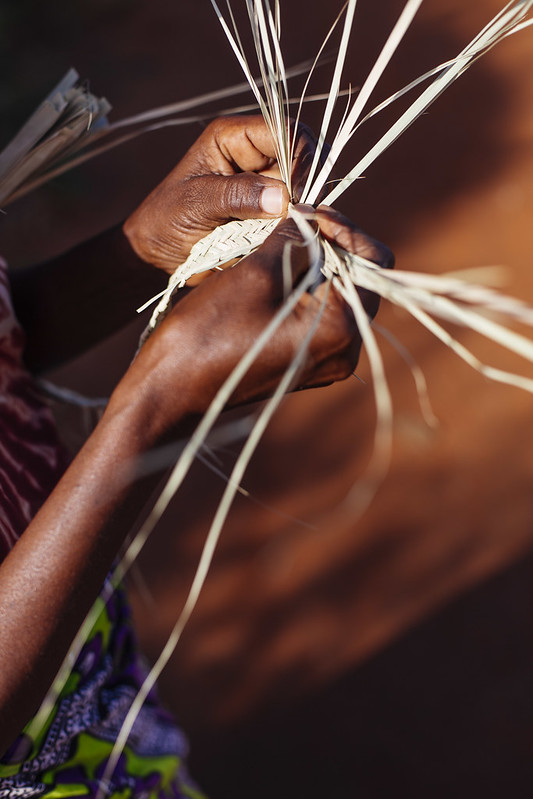
Discover more about the female artisans behind Hadithi

